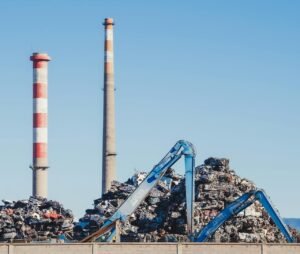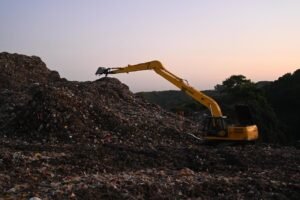The Allure of “Biodegradable”: A Wolf in Sheep’s Clothing
You’ve seen them everywhere: “biodegradable” cutlery, “eco-friendly” packaging, and “planet-safe” trash bags. These labels promise guilt-free convenience, but here’s the hard truth—over 60% of “biodegradable” plastics fail to break down in real-world conditions, lingering in oceans and landfills like their conventional counterparts.
The plastic industry has weaponized hope, swapping one environmental disaster for another. Let’s dissect the science, expose the lies, and reclaim the narrative.
Myth 1: “Biodegradable = Disappears Quickly”
Reality Check:
- Biodegradable ≠ Compostable: Most “biodegradable” plastics require industrial composting (high heat + specific microbes) to decompose. Less than 10% of cities globally offer these facilities.
- The 3-Year Test: A 2019 University of Plymouth study found “biodegradable” bags intact and functional after three years buried in soil or submerged in seawater.
The Greenwash Trap:
Terms like “biodegradable” are unregulated. Companies exploit this, knowing 72% of consumers pay more for “eco” products.
Myth 2: “Oxo-Degradable Plastics Are Better”
Reality Check:
- Oxo-degradables fragment into microplastics when exposed to light/heat, creating invisible pollution. The EU banned them in 2021, calling them “environmental fraud.”
- Microplastic Fallout: These particles infiltrate water supplies, crops, and even human blood.
Operation GrassRoots Insight:
Our R&D team found oxo-degradable residues in 40% of soil samples near landfills—proof of “green” labels gone rogue.
Myth 3: “Biodegradables Reduce Waste”
Reality Check:
- False Security: People toss 2x more “biodegradable” items, assuming they’ll vanish. Result? Chennai’s 2022 pilot saw no reduction in street litter after switching to “eco” packaging.
- Recycling Chaos: Mix biodegradables with conventional plastics contaminates recycling streams, forcing entire batches to landfills.
Human Story:
In Mumbai, beach cleanup volunteers found “compostable” coffee cups intact after 18 months. “We felt betrayed,” said organizer Priya K.
The Greenwash Playbook: How Companies Deceive You
- Vague Claims: “Made from plants!” (But blended with fossil-fuel plastics).
- Fake Certifications: Logos mimicking reputable eco-labels (e.g., “GreenTrust”).
- Buried Fine Print: “Composts in 12 weeks*” (*…in facilities that don’t exist).
Fight Back:
- Demand ASTM D6400 or EN 13432 certifications—the only standards ensuring industrial compostability.
- Use our Greenwash Detector Toolkit to decode labels.
Real Solutions: What Actually Works
**1. Reject Single-Use Culture:
- Chennai’s “Tiffin Movement” cut food packaging waste by 88% using reusable stainless steel containers.
**2. Invest in Circular Tech:
- Pyrolysis: Converts unrecyclable plastics into fuel (scaled by our partners in Bangalore).
- Depolymerization: Breaks plastics into raw materials for infinite reuse.
**3. Policy Pressure:
- Push for laws like Kenya’s plastic bag ban, which eliminated 80% of roadside waste.
Your Action Plan: Break Up with Biodegradables
- Audit Your Home: Use our Plastic Alternatives Checklist to swap “biodegradables” for reusables.
- Mobilize Your Network: Share this post + tag brands using #GreenwashExposed.
- Support Innovators: Donate to startups scaling genuine solutions like algae-based packaging.



